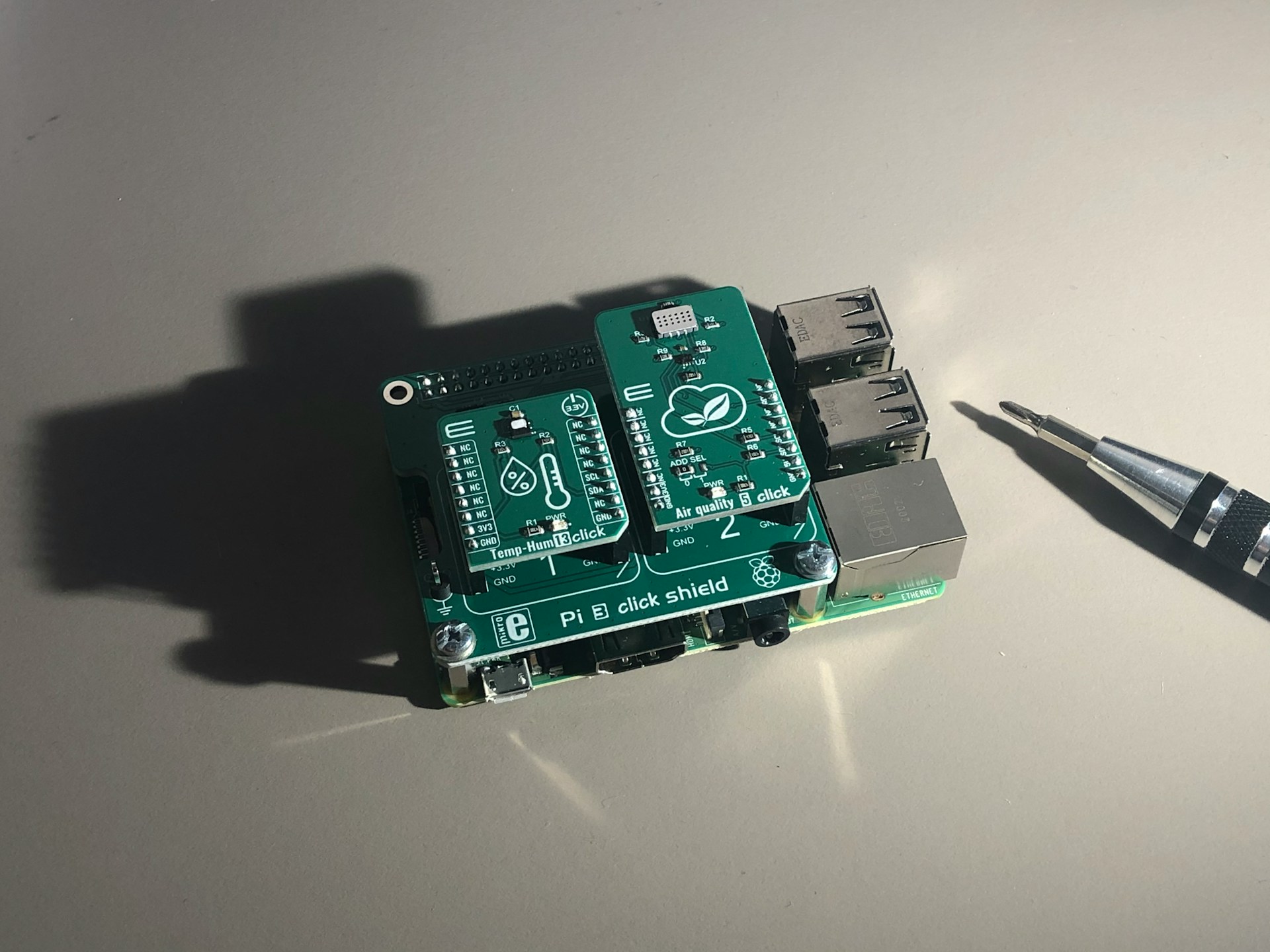Embedded systems engineers are in extremely high demand with the growth of IoT devices, the need for specialised skills in hardware and software optimisation, and the continuous growth of industries relying on embedded technology for innovation and functionality.
As the nature of these roles continues to expand and our reliance on their expertise within various sectors deepens, it’s essential that candidates possess the qualities and skills necessary to coordinate complex hardware configurations, excel in programming languages like C and assembly, and understand real-time operating systems.
In this guide, we will explore the key questions to ask when interviewing embedded systems engineers and what qualities and experiences to look for in candidates to ensure they can meet developing industry demands.
We will discuss the following areas:
- Technical Skills
- Interpersonal Skills and Cultural Fit
- Project-based Experience

Technical Skills Assessment
Professionals in embedded systems engineering play a direct and growing role in driving technological progress across various industries. Their work involves mastering intricate technical concepts and effectively collaborating with diverse teams to drive innovation.
Many professionals hold computer science or engineering degrees and actively pursue industry-specific certifications to stay up-to-date with advancements. Continuous learning is a common practice among them, often through workshops and specialised training programs, reflecting their commitment to technical excellence and personal growth.
According to statistics, 76% of embedded systems engineers have earned a bachelor's degree.
Employers seeking candidates in this field should prioritise individuals with a deep understanding of technical concepts. Embedded systems professionals must quickly integrate new technologies into their projects and effectively communicate their ideas.
What to Look For
Embedded systems are intricate and technical, requiring fully equipped engineers with the necessary expertise. Evaluating a candidate's understanding of embedded systems architecture, microcontrollers, peripherals, memory management, and interrupt handling is essential for identifying qualified talent.
If an embedded systems engineer lacks the necessary industry-relevant technical abilities to complete daily tasks successfully, progress could be delayed, leading to complications.
If you are looking for a well-balanced candidate, you should ensure that assessments are in place to determine the following:
- Programming Expertise: Proficiency in C/C++ for embedded systems, focusing on memory management, bitwise operations, and interrupt handling.
- Real-Time Operating Systems (RTOS): Knowledge of RTOS concepts like scheduling, semaphores, and mutexes. Gauge their experience with specific RTOS like FreeRTOS or µC/OS.
- Hardware-Software Interface: Understanding interfacing peripherals with software, including interrupt service routines (ISRs) and device drivers.
- Debugging Techniques: Experience with debugging tools (JTAG, debuggers) and troubleshooting methodologies for embedded systems.
Key Technical Assessment Methods
Once the critical technological methodologies pertinent to the position have been identified, employers can consider applying these to relevant interview questions. Rather than being able to observe them within the workplace, this is where the primary source of information regarding their abilities will come from.
There are several questions that employers can ask covering various technical areas. Let’s discuss these further:
Microcontrollers (MCUs)
Assessing the candidate's understanding of microcontroller fundamentals and their practical applications is crucial for evaluating their ability to work effectively with determined systems. To determine this knowledge, employers can ask candidates the following:
- Can you explain the difference between a microcontroller and a microprocessor? How do they differ in terms of applications?
- Describe the types of timers found on MCUs and their applications, such as PWM or RTC implementation.
Embedded System Design
Evaluating the candidate's grasp of embedded system architectures and their implications for design choices is essential for ensuring their ability to develop efficient and optimised systems.
- Discuss different embedded system architectures, like Harvard vs. von Neumann, and their implications for design choices.
- Describe approaches to designing highly reliable embedded systems that operate correctly under fault conditions.
Programming Expertise
Assessing the candidate's programming skills, especially in languages commonly used for embedded systems development, is crucial for determining their ability to implement efficient and stable software solutions. To understand a candidate's level of knowledge regarding programming, employers can ask:
- What are the advantages of using C over C++ in embedded systems development?
- How would you implement real-time communication protocols like CAN bus or Ethernet in an embedded system?
Real-Time Operating Systems (RTOS)
Understanding real-time operating systems and their associated concepts is vital for developing embedded systems that require precise timing and responsiveness. To ensure candidates understand this in-depth, employers can ask:
- Can you explain the concept of priority inversion in the context of real-time operating systems? How can it be mitigated?
- Compare and contrast scheduling algorithms used in RTOS, discussing their strengths and weaknesses.
Hardware-Software Interface
Assessing knowledge of hardware-software interaction is crucial for ensuring the candidate can effectively interface with peripherals and optimise system performance. To evaluate this knowledge, employers can pose the following questions to candidates:
- Explain memory-mapped I/O and its role in enabling communication between the processor and peripherals.
- Discuss techniques for handling signal integrity issues when interfacing high-speed peripherals with the microcontroller.
- Evaluate standards of common communication protocols and interfaces like UART, SPI, I2C, and CAN. Compare and contrast UART and SPI communication protocols. In what scenarios would you choose one over the other?
These questions cover various topics essential for evaluating a candidate's expertise in embedded systems development and will allow employers to gauge an embedded systems engineer’s current theory knowledge.

Project-Based Experience Assessment
Following the technical skills assessment, the next step, depending on the position's level, should be evaluating industry and project-based experience.
Practical experience is crucial in the field of embedded systems engineering. This role demands theoretical knowledge, precision and expertise from real-world applications. While theoretical understanding is essential, practical experience enables engineers to effectively address and solve the complex challenges they will encounter.
Assessing project-based experience involves examining the candidate's history of working on relevant projects, ability to apply technical knowledge in practical settings, and familiarity with industry standards and practices.
This experience can come from various sources, such as internships, industry collaborations, open-source contributions, research projects, and participation in hackathons or competitions. Each of these experiences provides insights into the candidate's capability to handle the demands of an embedded systems engineering role.
What to look for
Skilled professionals in embedded systems development are no strangers to hands-on experience, but how do employers decide which candidates best fit their needs? Seek candidates with expertise in embedded systems development, preferably in industries or projects related to the position.
Many job postings require at least three years of experience designing and developing large, integrated, complex systems for embedded systems engineer roles.
Employers should look for several vital attributes in qualified candidates, ensuring they possess both the theoretical foundation and the practical know-how essential for success.
Employers should focus on candidates who demonstrate:
- A Strong Level of Experience: Assess the candidate's experience and expertise in embedded systems, considering the complexity and scope of past projects they have worked on.
- Project Diversity: Look for candidates with diverse embedded systems projects showcasing their ability to work on different applications, platforms, or technologies.
- Technical Contributions: Evaluate the candidate's roles, responsibilities, and contributions in past projects, including any leadership or decision-making roles.
- Continued Learning: Seek candidates committed to professional growth and development in embedded systems, such as certifications, training, or involvement in relevant communities or organisations.
How to Assess
Practical assessment of candidates for embedded systems positions requires a comprehensive approach that delves into their past experiences, technical capabilities, and problem-solving skills. Employers can gain valuable insights into candidates' suitability for the role by combining targeted questions and practical activities.
Let’s discuss how each aspect of the assessment process contributes to evaluating candidates below with specific examples of how to assess experience.
Project Experience
Understanding a candidate's past embedded systems projects provides valuable insights into their hands-on experience, problem-solving abilities, and adaptability to different technologies and platforms. Employers can assess their depth of knowledge and expertise in the field by asking candidates to discuss their project history and specific roles.
Employers should look for practical experience in previous embedded system jobs to gauge the candidate's practical skills and industry knowledge, which are essential for success in embedded systems roles. To begin this process, hiring managers can ask the following questions:
- Can you provide examples of past embedded systems projects you have worked on? What was your role in those projects?
- What types of embedded systems applications have you been involved in developing throughout your career?
- Have you worked on projects involving various embedded systems platforms or technologies? Can you describe some examples?
- Can you discuss any significant achievements or successes in your previous embedded systems projects?
- Have you encountered any particularly challenging situations or projects in your embedded systems career? How did you handle them?
Industry Experience
The level of experience a candidate has in embedded systems development is a crucial indicator of their familiarity with industry standards, best practices, and emerging technologies. By probing into the candidate's years of experience and methods of staying updated with industry developments, employers can gauge their commitment to continuous learning and professional growth.
This section assesses the candidate's industry knowledge, adaptability, and ability to keep up with advancements in the field. To understand a candidate's experience thoroughly in an interview setting, hiring managers should ask the following:
- How many years of experience do you have working in embedded systems development?
- How do you stay updated with the latest developments and advancements in embedded systems?
Activity: Code Review
In addition to questioning, practical assessments offer a hands-on way to evaluate a candidate's technical proficiency and problem-solving skills. A code review activity, in which the candidate is asked to analyse and suggest improvements for a piece of embedded systems code, demonstrates their ability to identify issues, optimise performance, and ensure reliability.
Expanded Example Prompt:
"Could you review this piece of code and suggest any improvements or optimizations you would make to enhance its efficiency and reliability? Please consider factors such as code readability, performance optimization, and error handling."
This activity allows employers to observe the candidate's approach to problem-solving, communication skills, and attention to detail in a real-world context.

Interpersonal Skills and Cultural Fit
Embedded systems jobs require vast knowledge, but interpersonal skills and assessing cultural fit are typically overlooked in the interview process due to the need for technical skills. However, overlooking the significance of interpersonal skills and cultural fit can be a missed opportunity, as they are a large part of an embedded systems engineer's role.
Assessing candidates for these qualities ensures effective communication, positive client interactions, creative problem-solving, and collaboration within the team, ultimately contributing to a harmonious work environment and successful project outcomes.
What to Look for:
Collaboration with different teams and adept problem-solving are crucial for their success. Project success could be prevented if they struggle with interpersonal skills like collaboration, clear communication, and teamwork.
Here are key attributes to look for when assessing embedded systems engineers:
- Problem-Solving Ability: The candidate's problem-solving skills and approach to tackling complex technical challenges.
- Communication Skills: The candidate can clearly and effectively explain technical concepts, especially to non-technical stakeholders.
- Teamwork and Collaboration: How well the candidate works in a team environment and their ability to collaborate with cross-functional teams.
Assessment Methods
When assessing candidates for embedded systems positions, it's essential to consider their technical skills, interpersonal abilities, and cultural fit within the organisation. As embedded systems jobs require various soft skills to enable candidates to perform their potential job responsibilities correctly, employers can assess these in several ways. Let’s discuss some examples:
Interpersonal Skills Assessment
Effective communication and problem-solving skills are essential for embedded systems engineers to collaborate effectively and overcome challenges in project development. Assessing these soft skills ensures the candidate can work efficiently within a team and communicate technical concepts clearly to stakeholders.
Though not a full scope of their interpersonal skills, employers can begin asking an embedded system engineer the following to determine these set capabilities:
- How do you solve a problem when encountering a roadblock in your embedded systems development process?
- Describe when you had to communicate complex technical information to a non-technical team member or client. How did you ensure they understood the key points?
- Can you provide an example of a successful collaboration experience you've had while working on an embedded systems project? How did you contribute to the team's success?
Cultural Fit Questions
In addition to technical skills, cultural fit is crucial for a candidate's organisational success. Here are some questions to assess cultural fit:
- Can you describe a work environment where you thrive best? How does it align with our company culture?
- What values are most important to you in a workplace, and how do you see them reflected in our organisation?
- Give an example of a time when you had to adapt to a new team or work culture. How did you approach this change, and what was the outcome?
- How do you handle conflicts or disagreements within a team setting? Can you provide an example of a time when you successfully resolved a conflict?
Through behavioural questions and informal conversations, evaluate the candidate's enthusiasm for embedded systems development and alignment with the company's culture and values.
Exercise
Problem-solving is a significant aspect of the embedded systems engineer role. During the interview, present candidates with a small embedded systems problem to assess their problem-solving skills and coding abilities.
Provide candidates with the task of designing a simple temperature monitoring system using an embedded microcontroller. The system should read temperature data from a sensor, display it on an LCD screen, and illuminate an LED as an alert if the temperature exceeds a predefined threshold.
Requirements:
- Interface a temperature sensor with the microcontroller to obtain temperature readings.
- Implement logic to compare the temperature readings with a predefined threshold value.
- Display the temperature reading on an LCD screen.
- Illuminate an LED as an alert if the temperature exceeds the threshold.
Evaluation Criteria:
- Assess the correctness of the implemented solution.
- Evaluate the efficiency and reliability of the code.
- Pay attention to the candidate's handling of sensor data and display results.
- Consider the candidate's use of appropriate coding practices and methodologies.
Employers can effectively evaluate key transferable interpersonal skills through practical examples, mirroring real workplace scenarios.

Final Thoughts on Evaluating Embedded Systems Engineers
Embedded systems engineers are crucial for technological advancement, particularly in IoT and hardware optimisation. As the demand for their expertise grows, it's essential to ensure candidates possess technical prowess, interpersonal skills, and cultural fit.
Finding a balance is essential in building teams of embedded systems engineers who excel in technical execution and collaborative innovation. By asking relevant technical, skill-based, and experience questions, employers can effectively evaluate candidates' problem-solving abilities, communication skills, and teamwork.
Employers can utilise these insights to make informed hiring decisions and assemble teams capable of driving technological progress and achieving project success in the changing environment of embedded systems jobs.
Expert Embedded Systems Recruitment Solutions
At Amoria Bond, we specialise in sourcing top talent for businesses seeking embedded systems engineers, advanced technology specialists, and tech sector professionals. We aim to connect your business with exceptional candidates who can drive innovation and success. With a team of highly skilled recruitment consultants, we are dedicated to finding the best candidates globally.
Whether your business requires expertise in embedded systems or cutting-edge technology solutions, we have the capabilities and resources to meet your needs. Contact us today to discover how we can help you find the perfect fit for your team.






